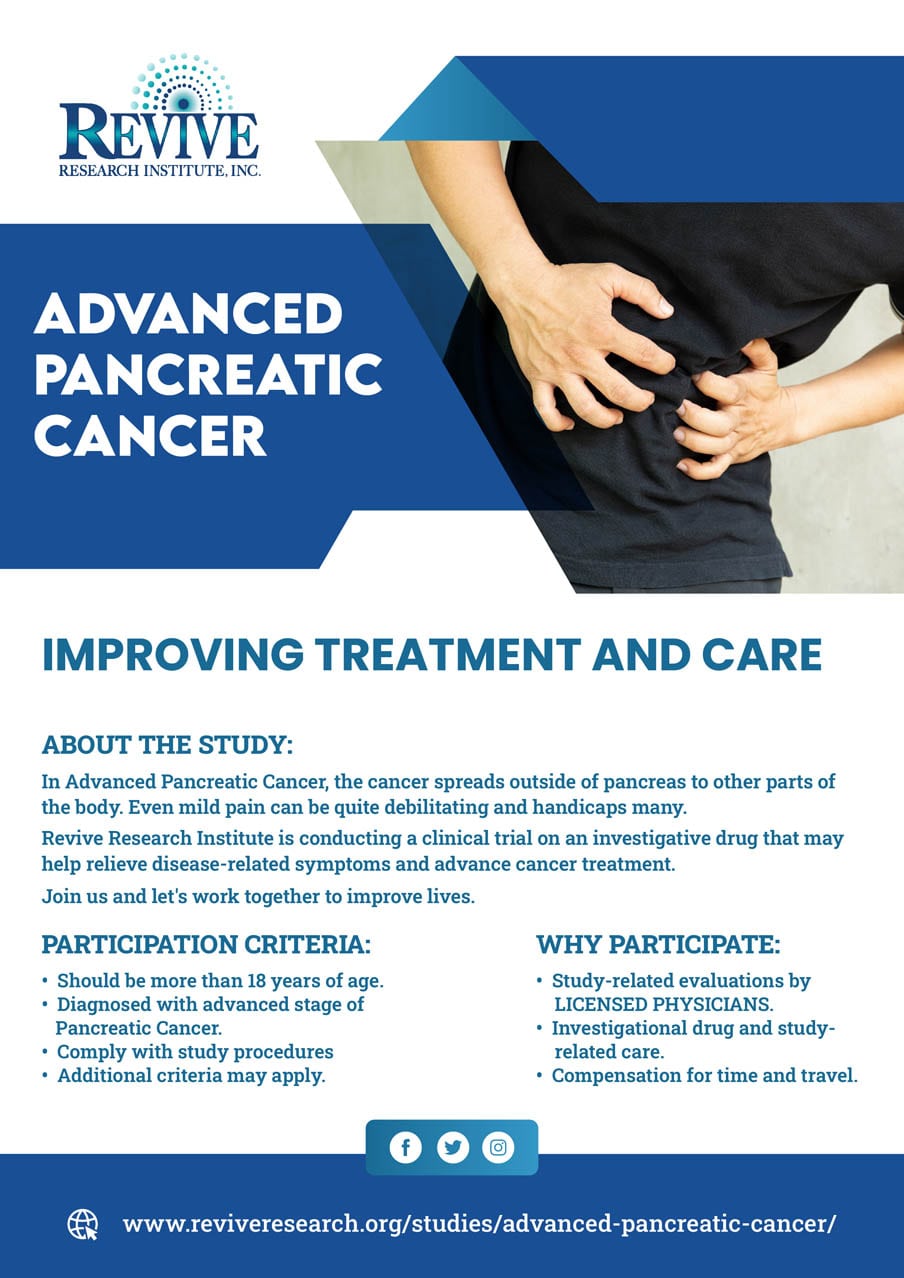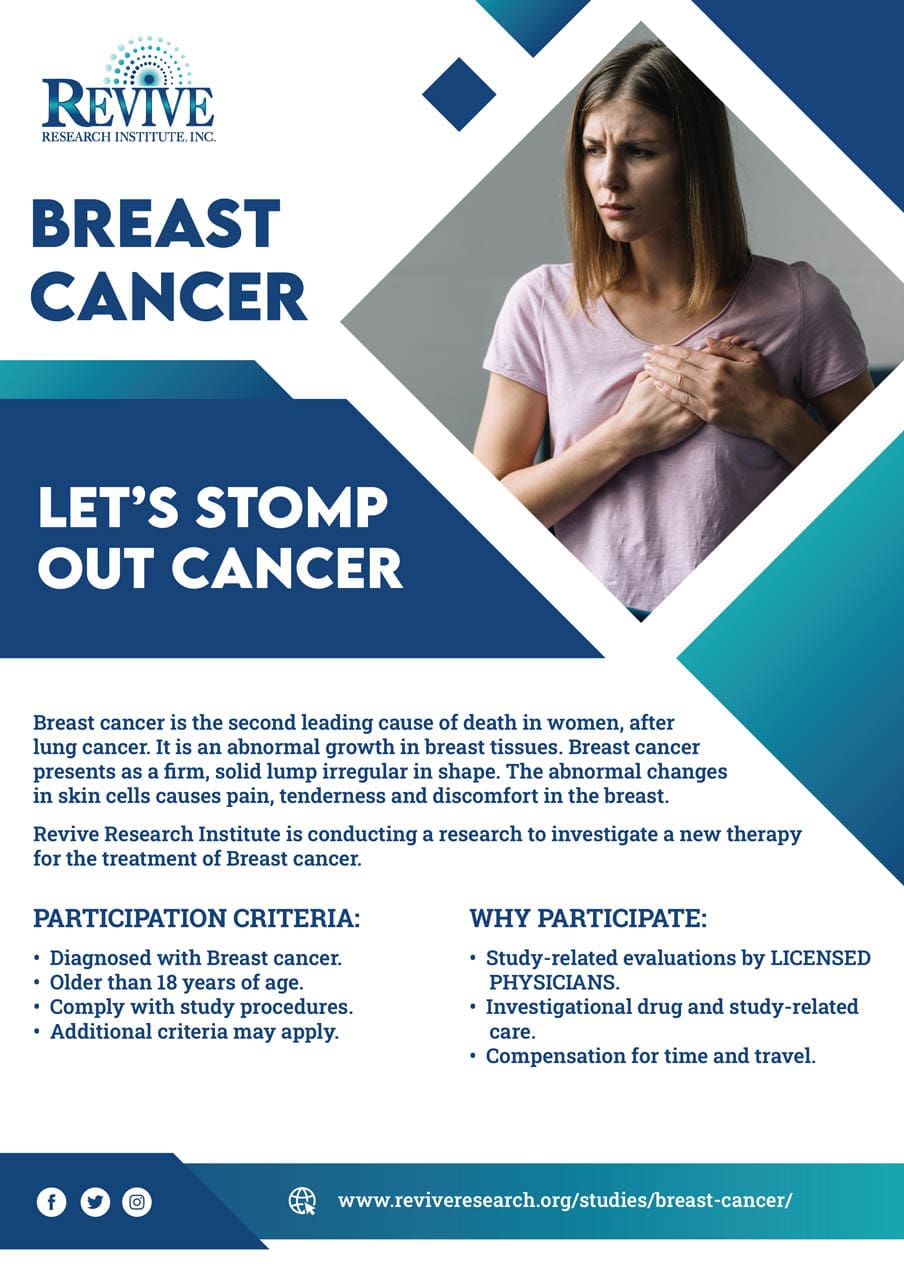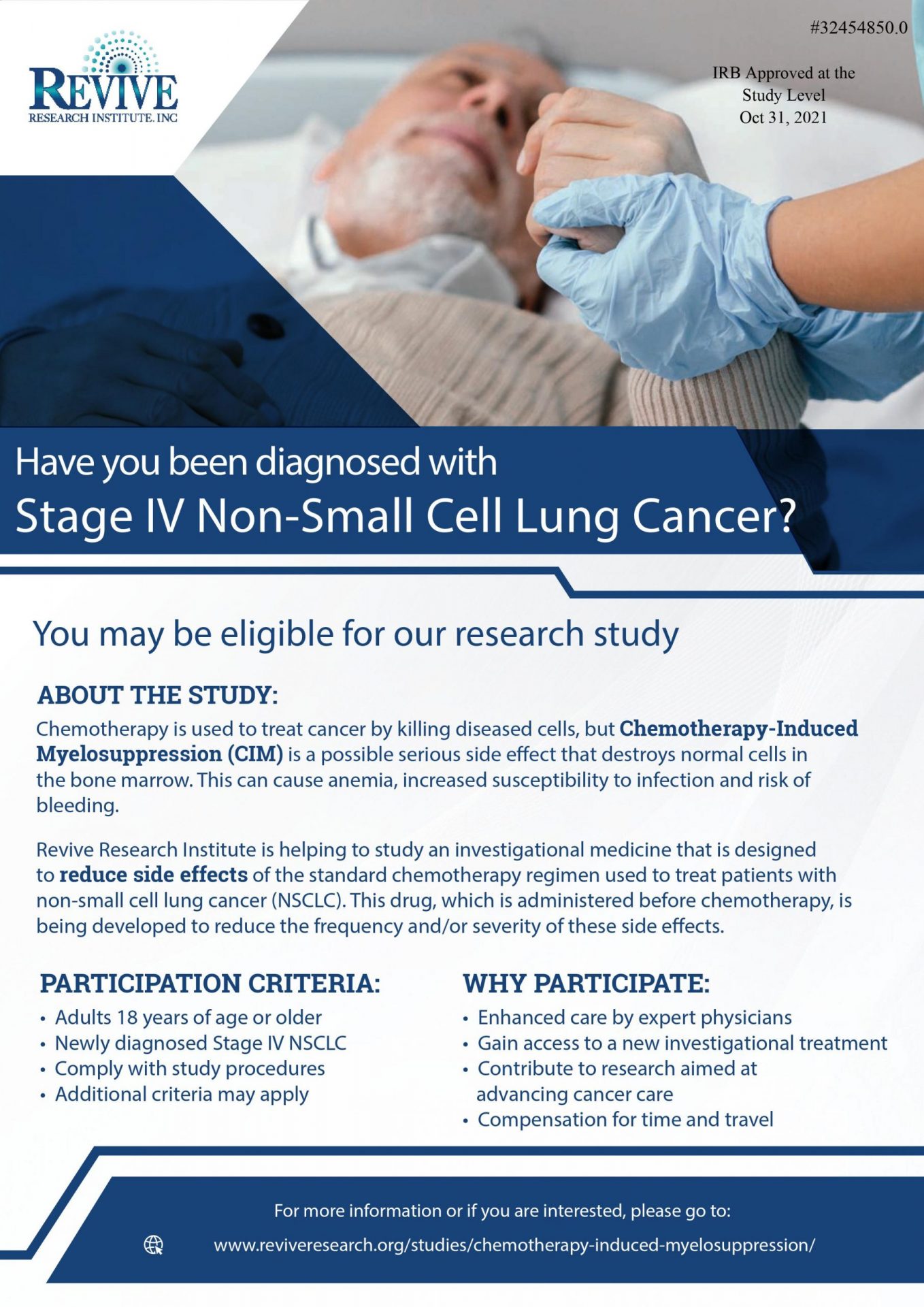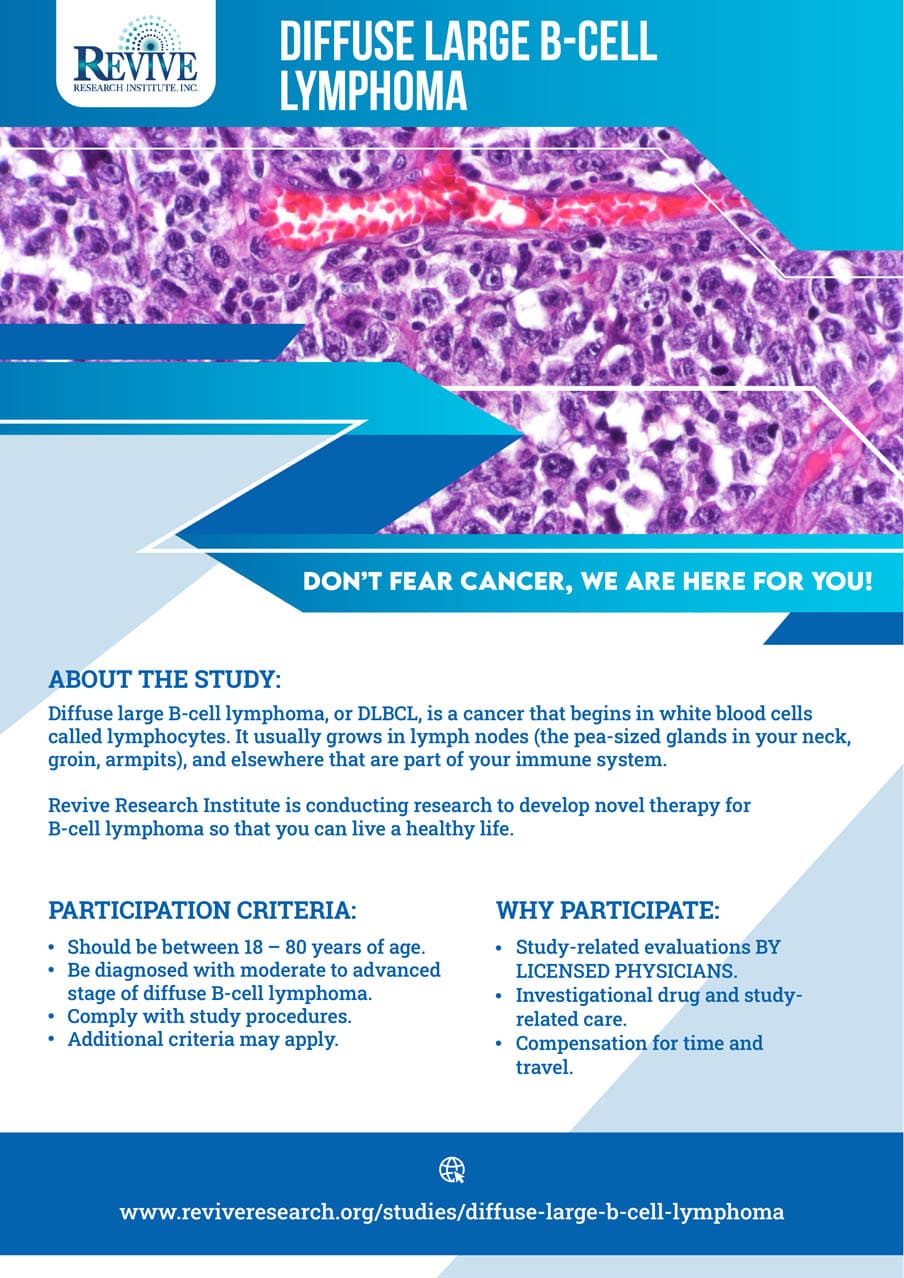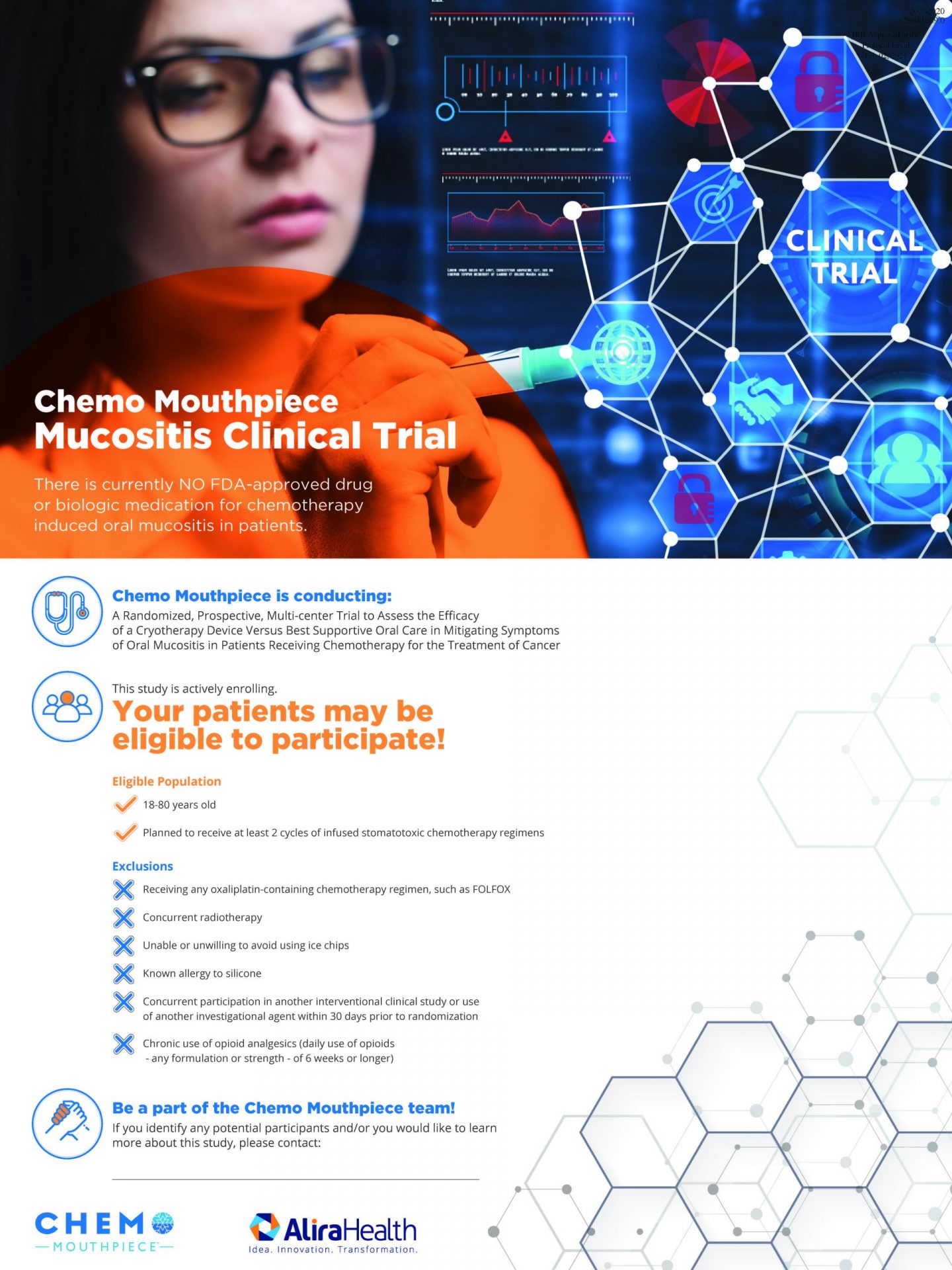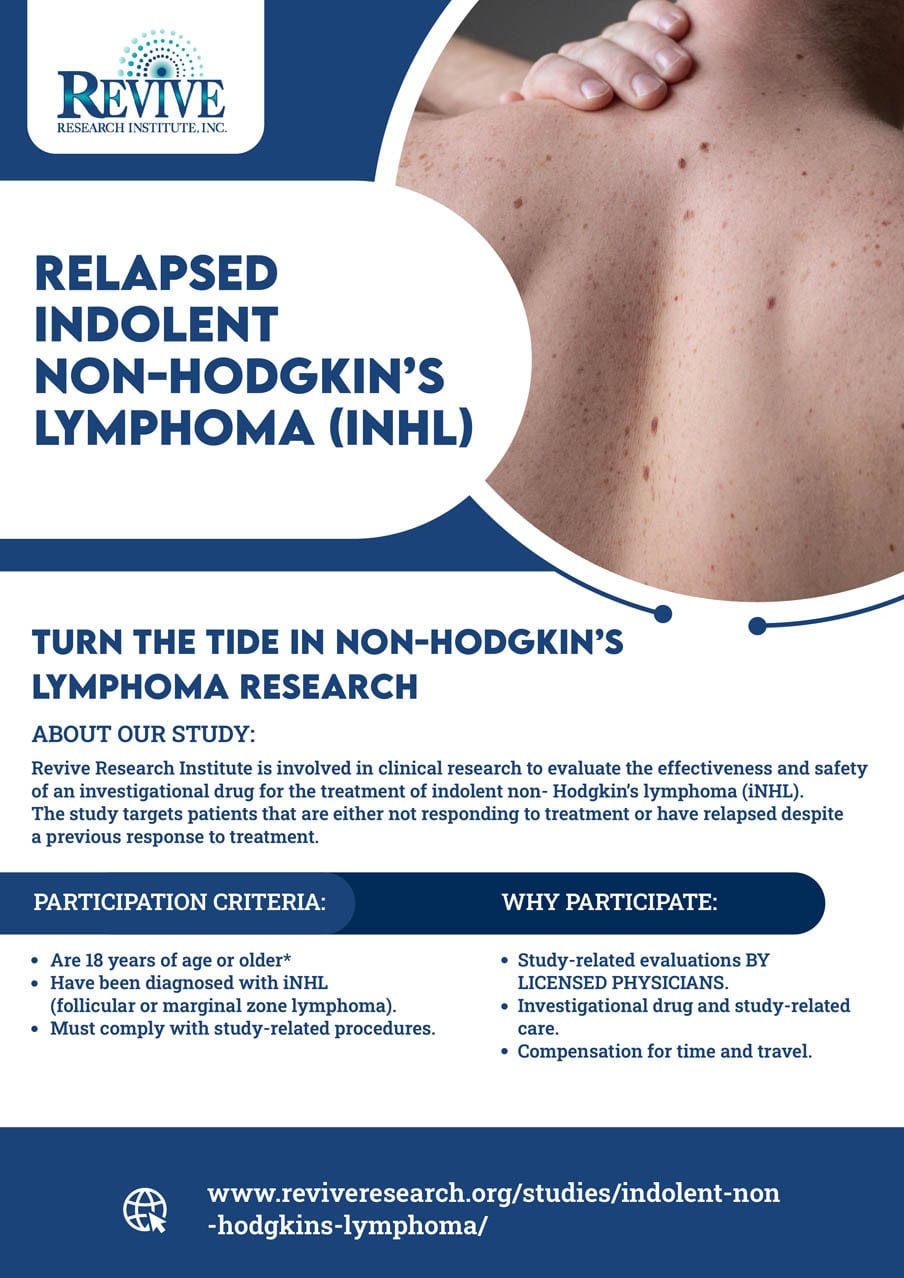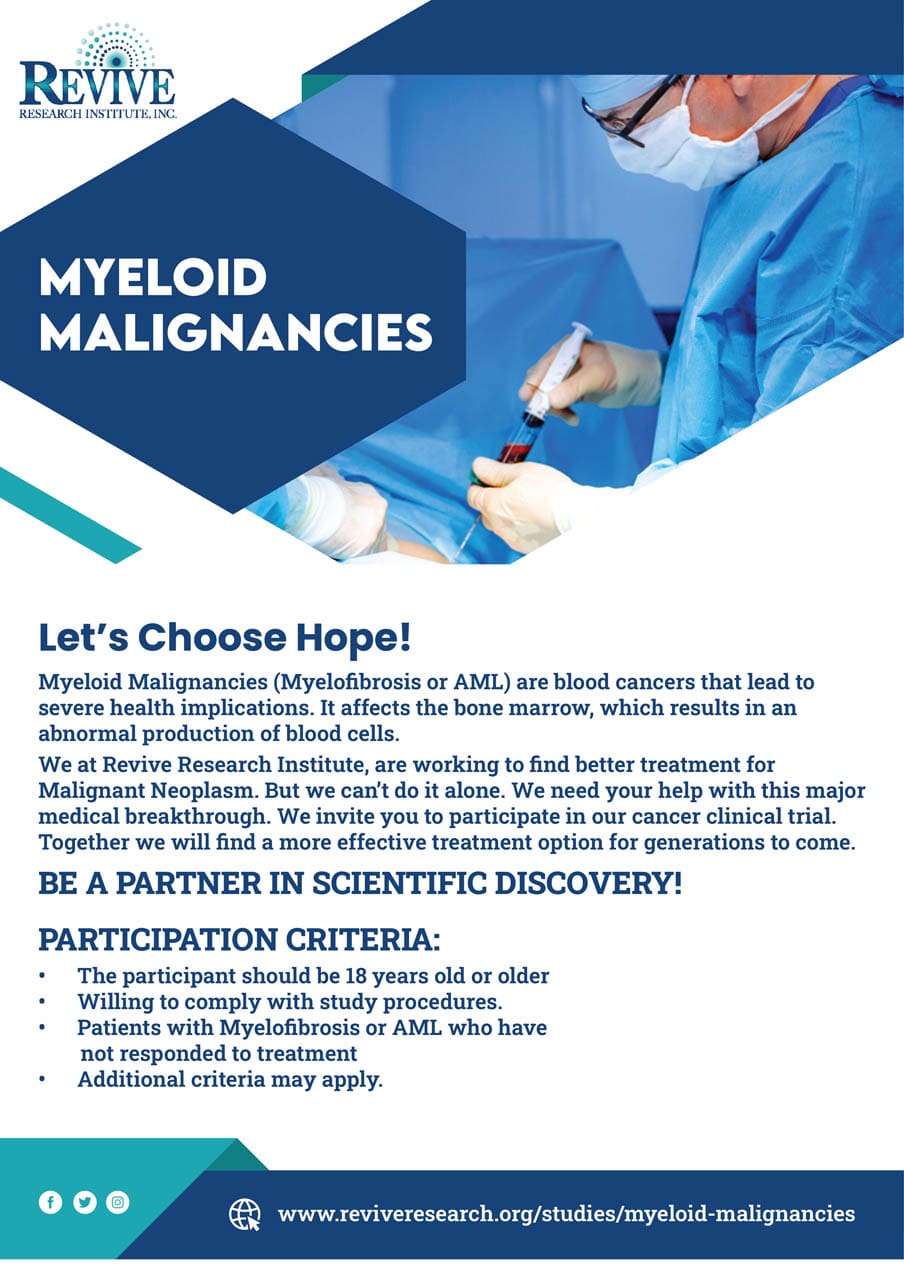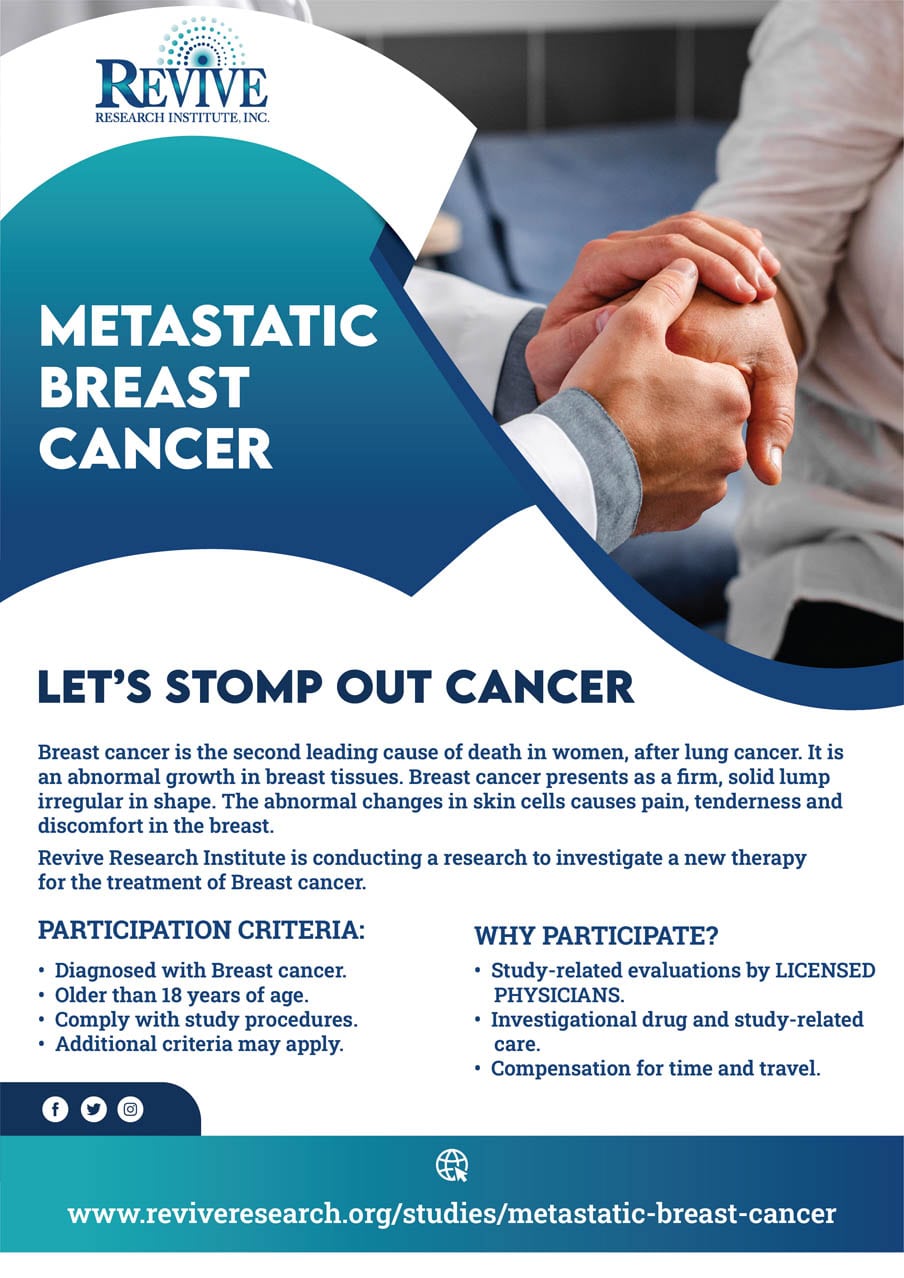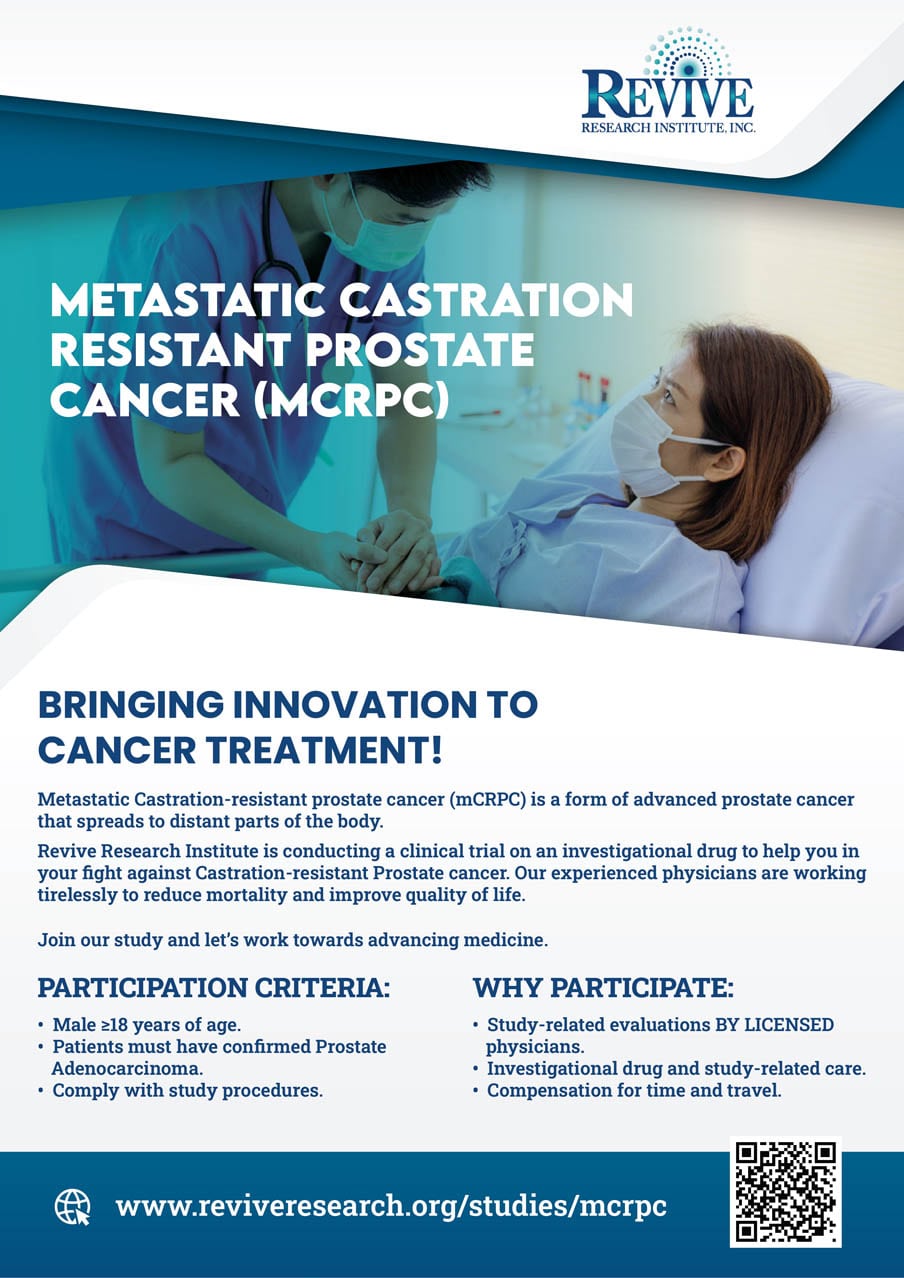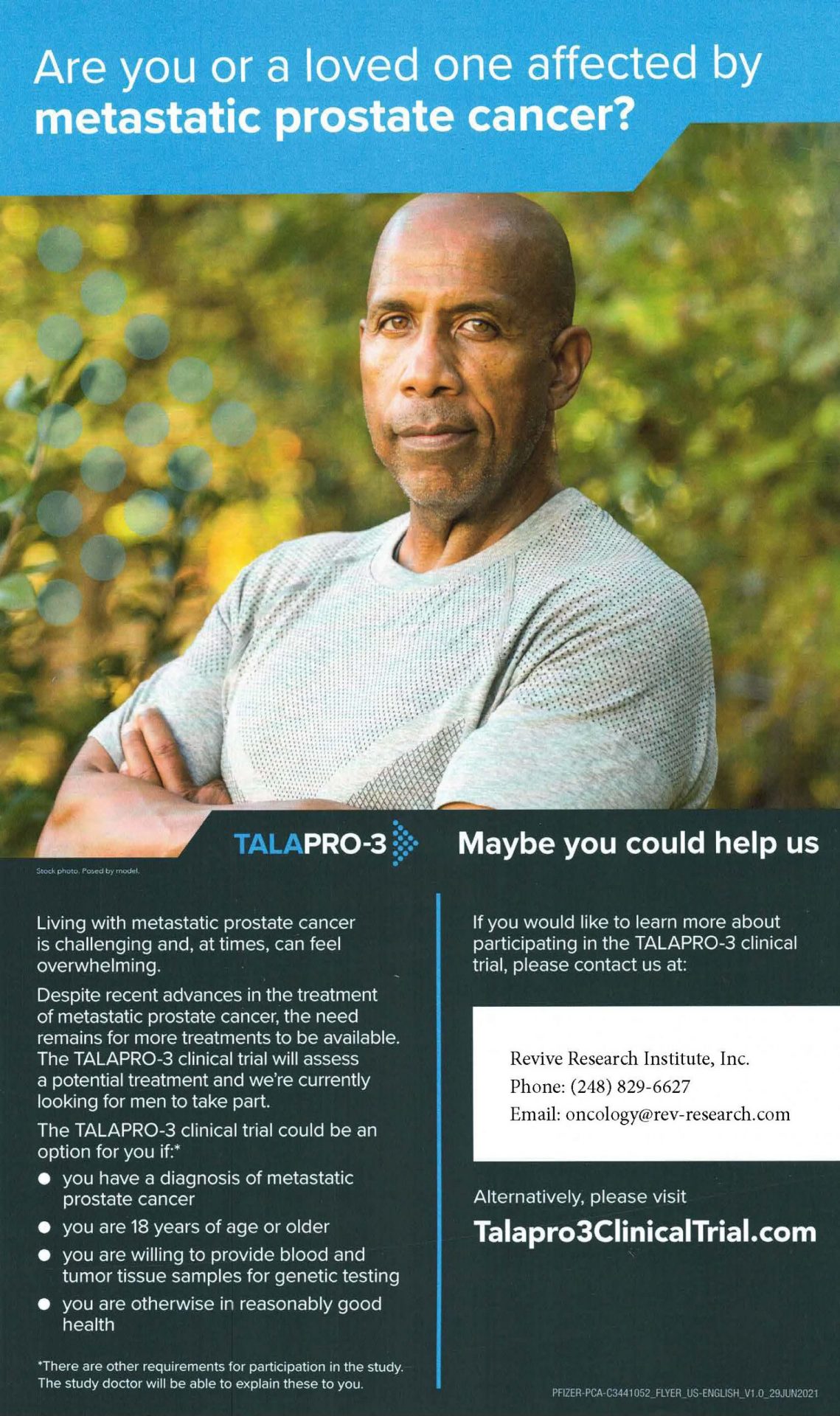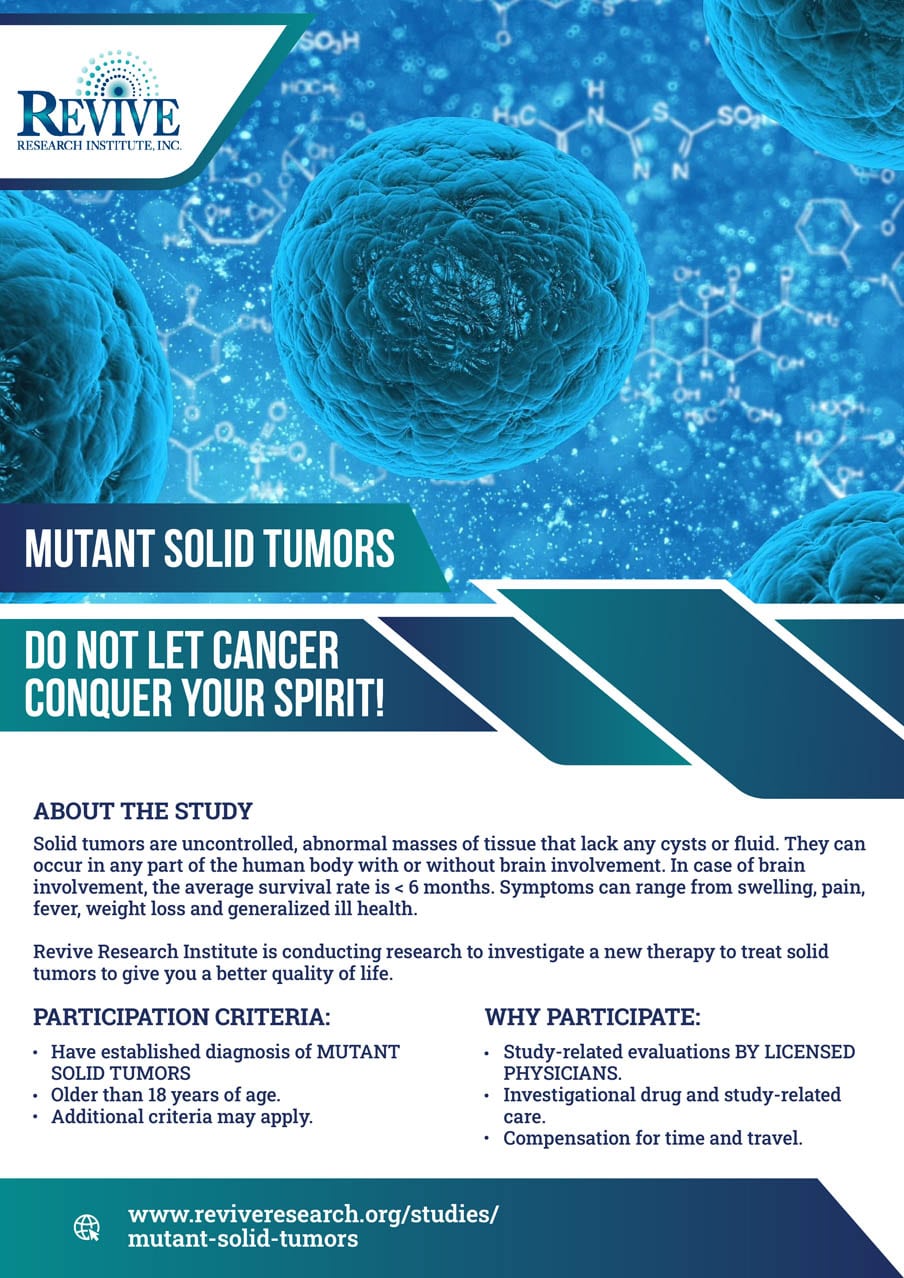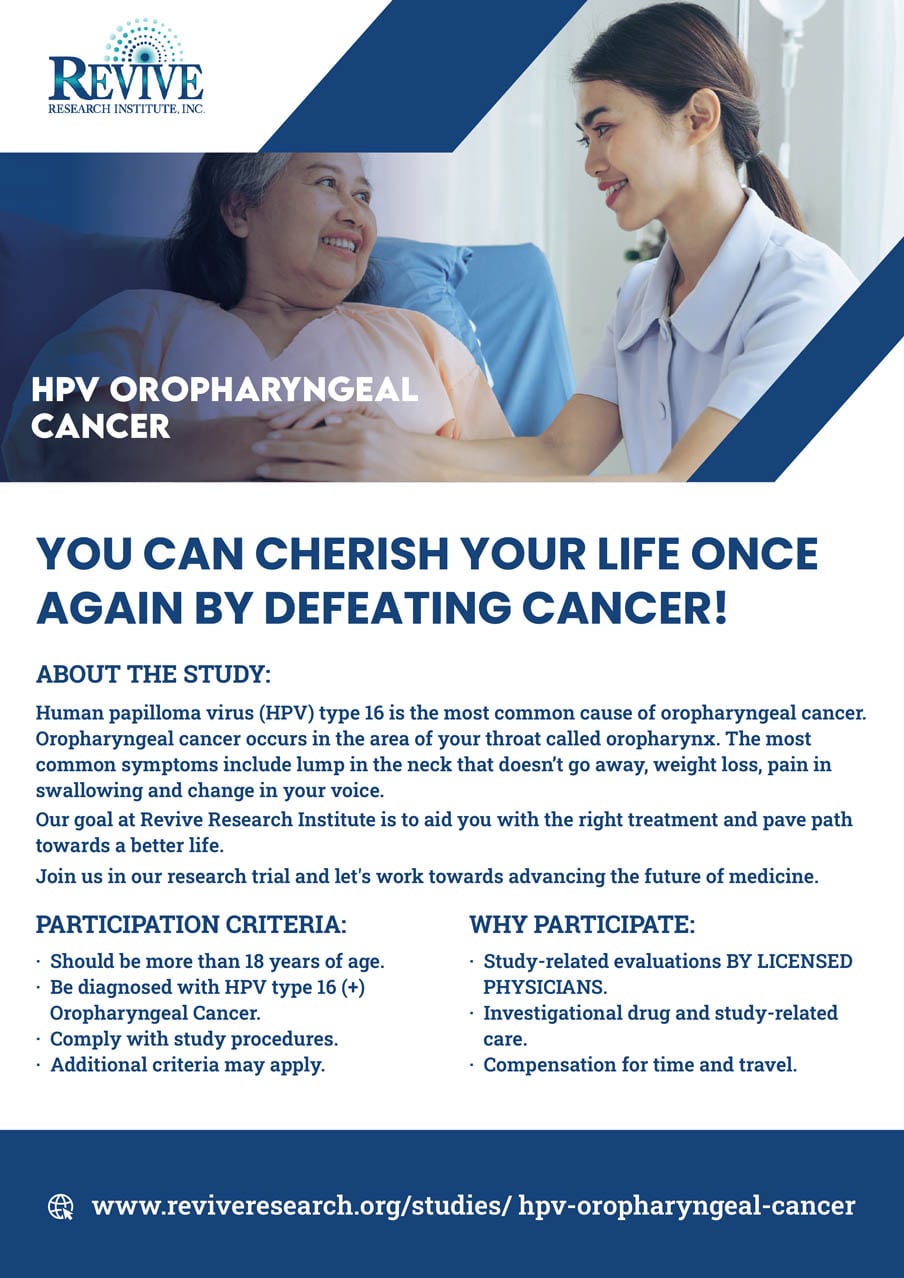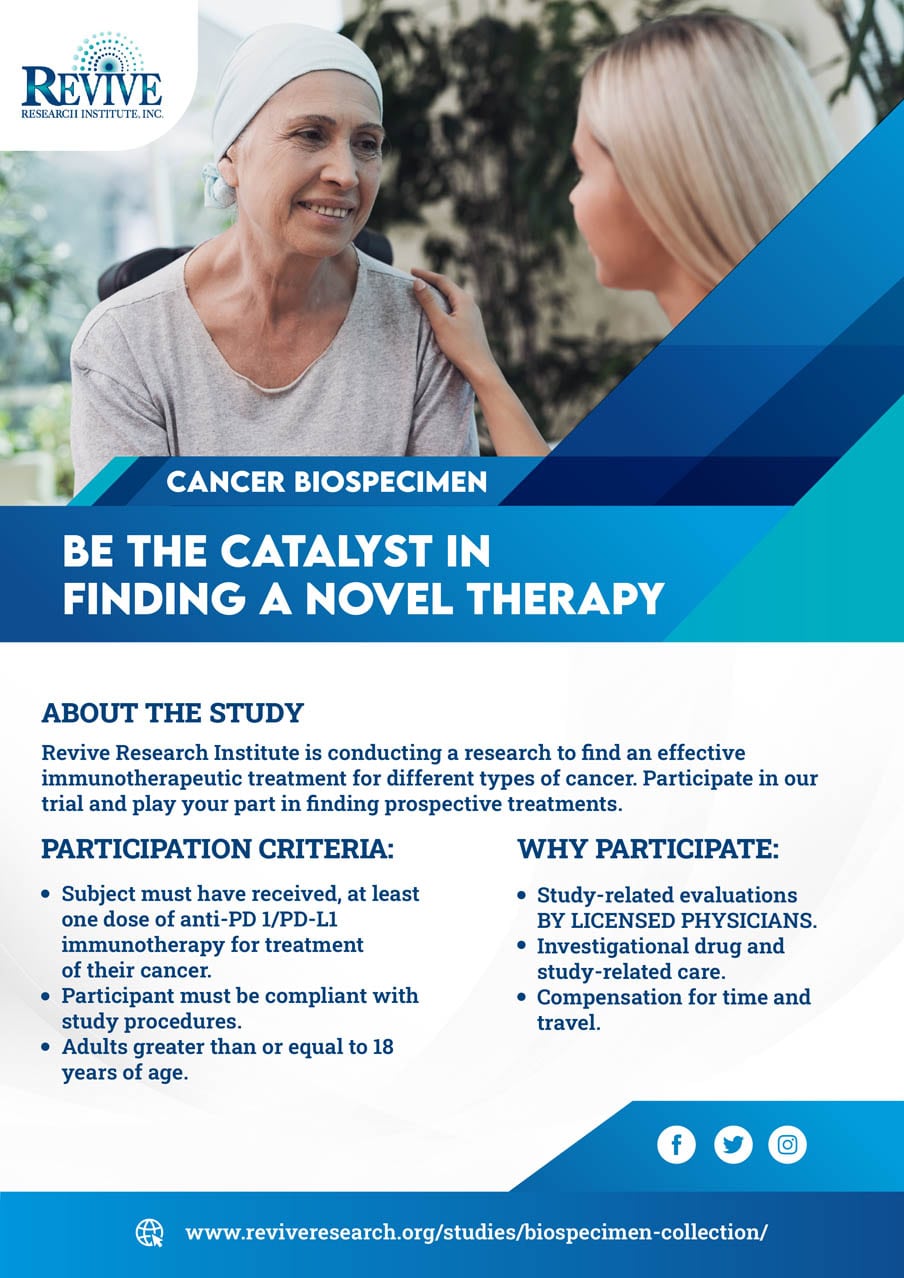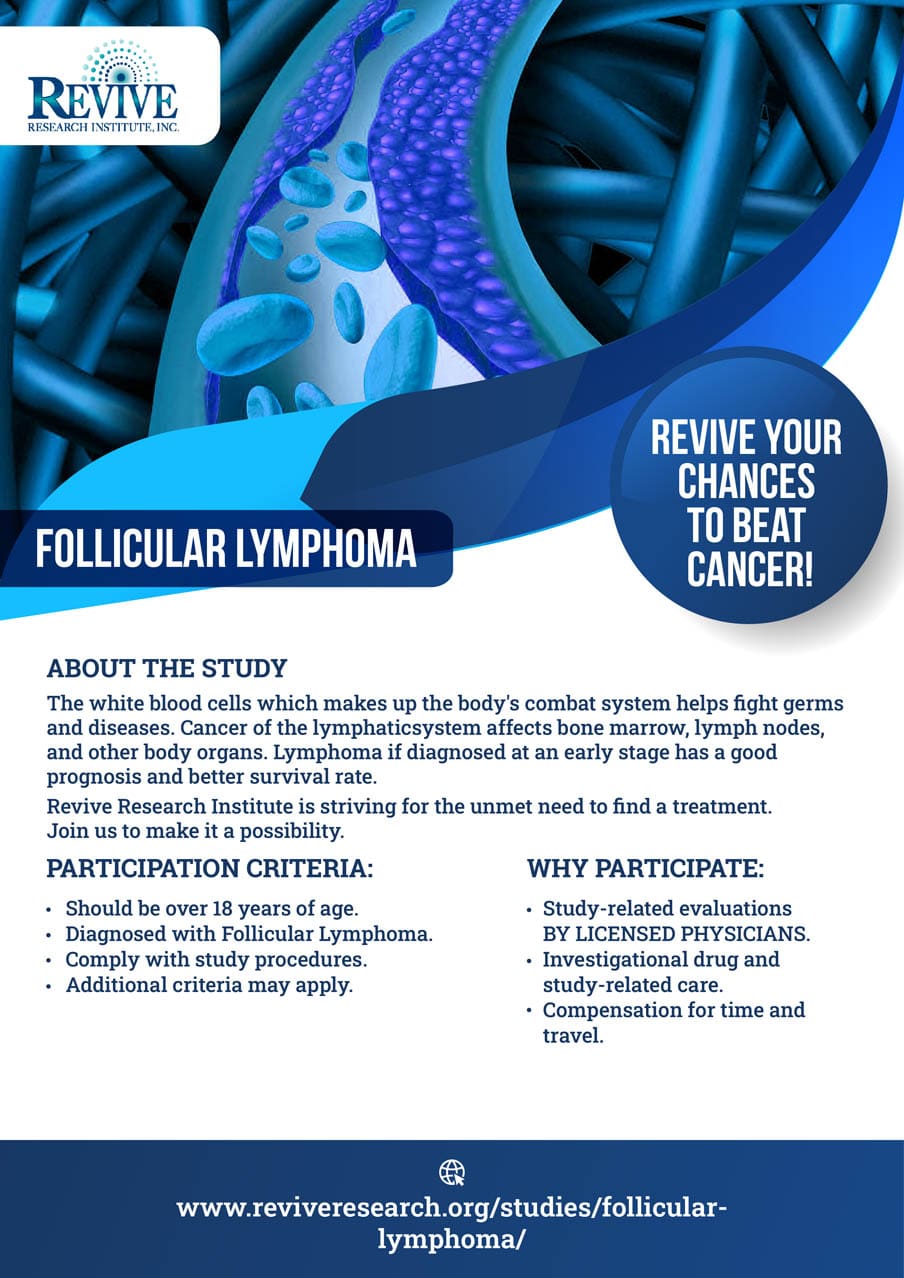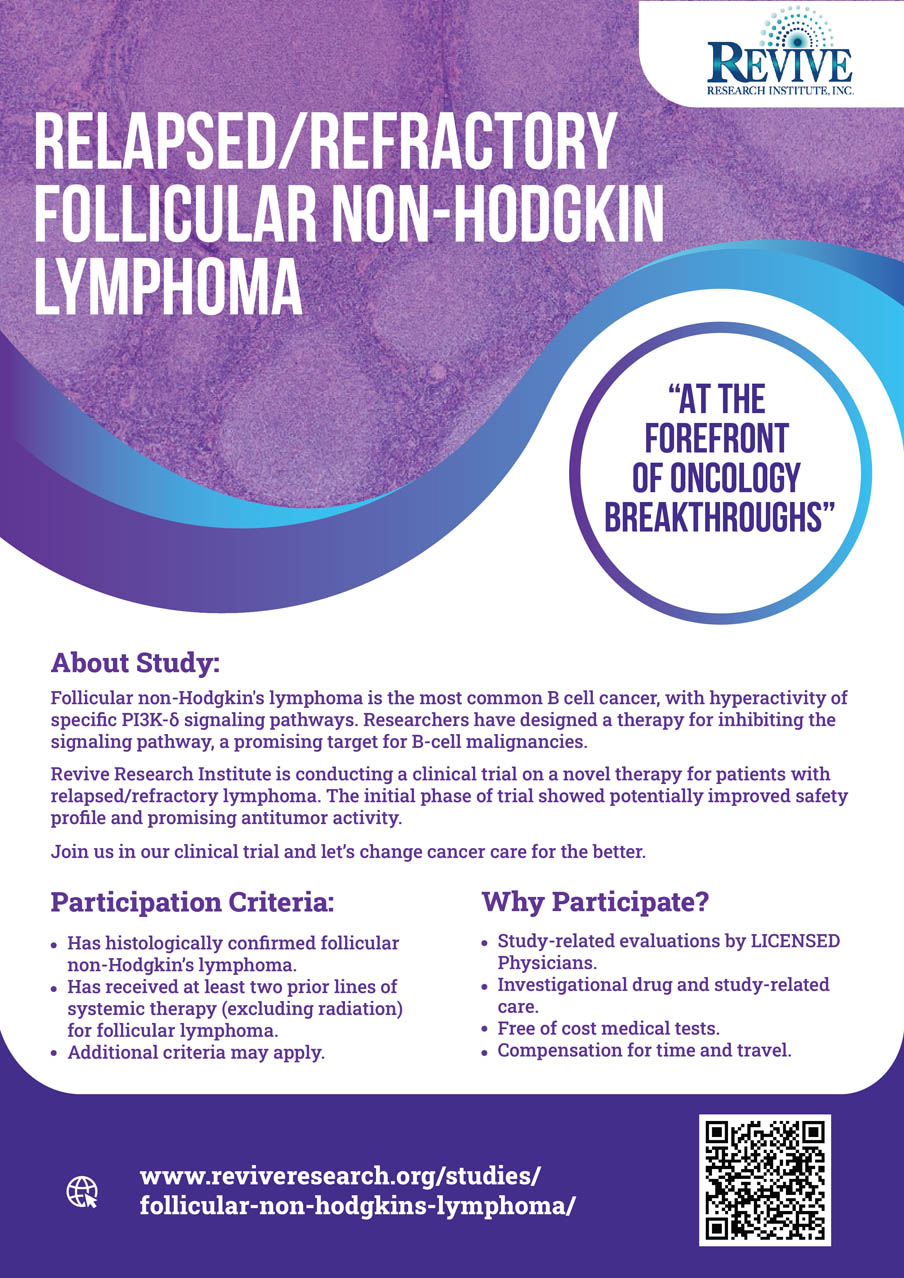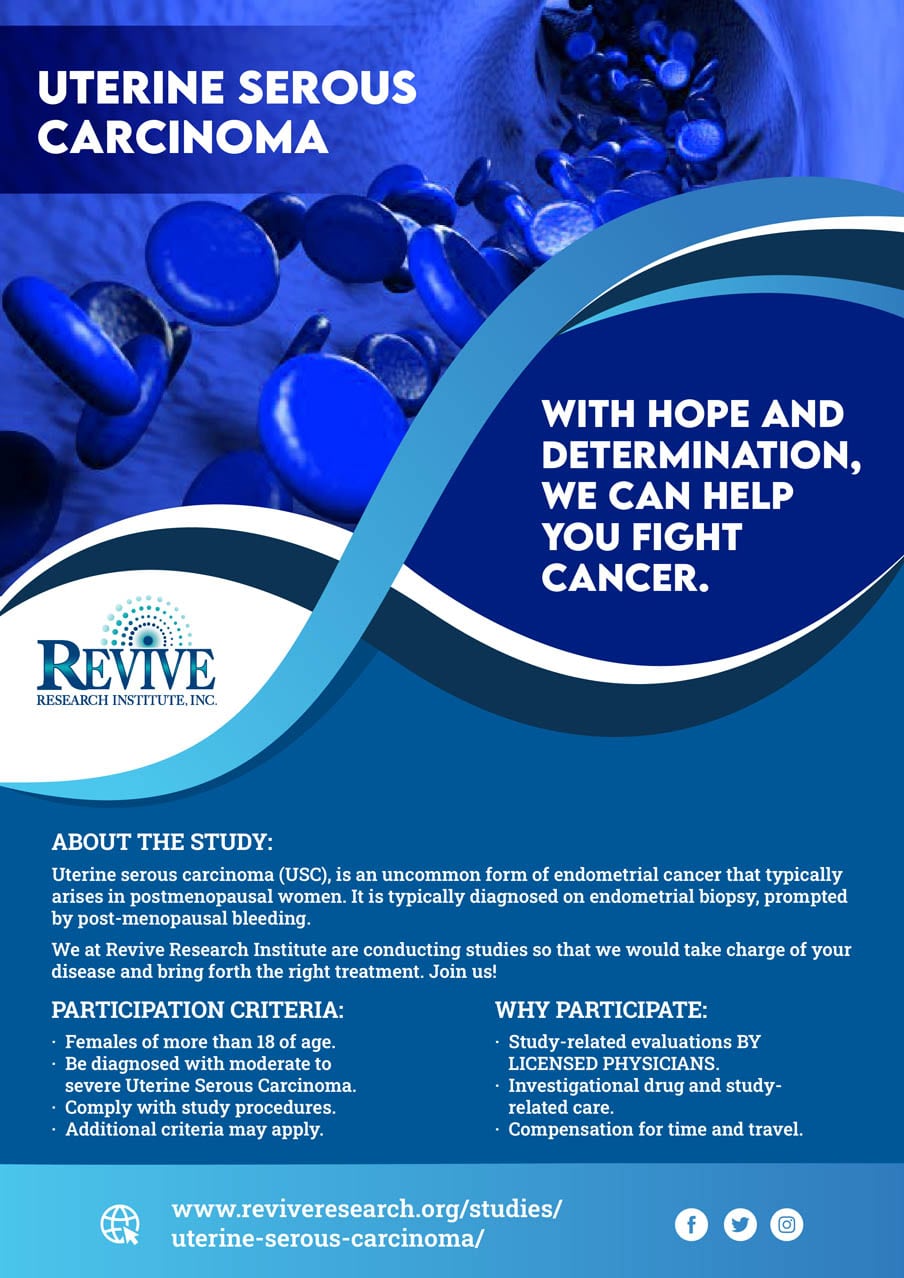Expertly conducting cancer clinical research to make precision medicine accessible to the masses. Our Oncologists in Michigan and research staff have experience in clinical and research settings to ensure quality care and scientific data integrity. Navigate through our Oncology Clinical Trials.
Oncology
Advanced Pancreatic Cancer
Advanced Pancreatic Cancer or Metastatic Pancreatic Adenocarcinoma (mPAC) is becoming more common. This cancer has a five-year survival rate of less than 5%. mPAC affects about 85% of individuals, with the condition being incurable and treatment choices restricted. With the help of experienced research staff and Oncologists in Michigan, Revive Research Institute is conducting Cancer Clinical Trials to see if a new second-line medication can help patients with advanced pancreatic cancer enhance their quality of life and performance.
Age
18 years or older
Gender
Male and female
Condition
Advanced Metastatic Pancreatic Adenocarcinoma
Current Status
Not Recruiting
Breast Cancer
Breast cancer is one of the leading causes of death in women around the world. There is a need for new treatment modalities and targeted therapies for hormone-receptor positive (HR+) breast cancer, an advanced form of breast cancer. A common treatment for these people with this condition is ovarian suppression in combination with hormone therapy. Our research staff and Oncologists in Michigan are currently conducting Oncology Clinical Trials to assess a new therapy for ovarian suppression in the treatment of breast cancer. The purpose of the study is to assess the safety and tolerability of the experimental drug in individuals with HR+, HER2- breast cancer.
Age
18 - 55 years
Gender
Male and female
Condition
Stage I, II or III Breast Cancer
Current Status
Not Recruiting
Chemotherapy-Induced Myelosuppression
Bone marrow suppression, also known as myelosuppression, is a condition in which bone marrow activity is reduced. This results in a decrease in blood cell synthesis. Chemotherapy-Induced Myelosuppression (CIM) is a significant chemotherapy side effect that causes the bone marrow to destroy both normal and malignant cells. Our Oncologists in Michigan are conducting Clinical Cancer Research on an experimental medication that may be able to reduce the painful side effects of the standard chemotherapy regimen used to treat people with non-small cell lung cancer (NSCLC).
Age
18 years or older
Gender
Male and female
Condition
Adenocarcinoma of Non-Small Cell Lung Cancer (NSCLC)
Current Status
Not Recruiting
Diffuse Large B-Cell Lymphoma
Diffuse Large B-Cell Lymphoma (DLBCL) is a kind of non-Hodgkin lymphoma (NHL), which is a malignancy of the white blood cells that can cause exhaustion, weight loss, and pain. Chemotherapy is currently the first-line treatment for cancer, but developing a more effective first-line treatment option is critical to improving long-term results, especially in high-risk patients. Revive Research Institute is conducting Oncology Clinical Trials to find improved treatment modalities for DLBCL.
Age
18 years or older
Gender
Male and female
Condition
Diffuse Large B-Cell Lymphoma
Current Status
Not Recruiting
Efficacy of Cryotherapy Device with Oral Mucositis
Oral mucositis is a common side effect of standard chemotherapy regimens for the treatment of cancer. It starts 5 -10 days after chemotherapy begins and lasts 7-14 days. There is currently no FDA-approved medication or therapy for chemotherapy-induced oral mucositis. Mucositis creates additional difficulty for cancer patients that may be avoidable with the right therapies. Our research team along with an Oncologist near you in Michigan are conducting Clinical Cancer Research on a therapeutic device that may be able to help with symptoms of oral mucositis induced by chemotherapy.
Age
18 - 80 years
Gender
Male and female
Condition
Oral Mucositis Induced by Chemotherapy
Current Status
Not Recruiting
Indolent Non-Hodgkin’s Lymphoma (iNHL)
Follicular Lymphoma (FL) and Marginal Zone Lymphoma (MZL) are all examples of Indolent Non-Hodgkin’s Lymphoma (iNHLs), which have a good prognosis but are not curable with the current therapy choices. FL and MZL react to standard of care therapies at first, although remissions and relapses are common. Revive Research Institute is conducting Oncology Clinical Trials on a combination therapy (experimental medication in combination with the approved standard of care treatment). Our research team and Oncologists in Michigan aim to demonstrate that this combination is superior to the standard immunochemotherapy in previously treated patients with Indolent Non-Hodgkin’s Lymphoma.
Age
18 years or older
Gender
Male and female
Condition
Indolent Non-Hodgkin’s Lymphoma (iNHL)
Current Status
Not Recruiting
Malignant Myeloid Hematologic Neoplasms
Myelofibrosis
Myelofibrosis is a myeloproliferative tumor (a group of blood cancers) that can lead to severe health implications. Oncologist near you in Michigan at Revive Research Institute are conducting a new research study on an experimental drug to better treat patients with malignant myeloid hematologic neoplasms. The purpose of this Oncology Clinical Trial is to observe the safety, efficacy, and tolerability of the study medication without the standard therapy. If you’ve been diagnosed with primary myelofibrosis (PMF) or secondary myelofibrosis (SMF), post polycythemia vera myelofibrosis (post-PV MF), or post-essential thrombocytosis (post ET-MF), and the standard therapy has failed you, this research study may be able to help you.
Age
18 years or older
Gender
Male and female
Condition
Myelofibrosis
Current Status
Not Recruiting
Metastatic Breast Cancer
Breast cancer is one of the most commonly diagnosed cancers in women. With resistance developing to conventional endocrine therapies, there is a dire need for alternative treatment approaches. With the help of Oncologists in Michigan, Revive Research Institute is conducting Oncology Clinical Trials on investigational medications that may be able to help people with AR+/ER+/HER2- Metastatic Breast Cancer. If you’ve been diagnosed with metastatic breast cancer or have been failed by conventional treatments, consider joining our Clinical Cancer Research.
Age
18 years or older
Gender
Male and female
Condition
AR+/ER+/HER2- Metastatic Breast Cancer
Current Status
Not Recruiting
Metastatic Castration-Resistant Prostate Cancer (mCRPC)
Metastatic Castration-Resistant Prostate Cancer (mCRPC) is a form of advanced prostate cancer. Revive Research Institute is conducting Oncology Clinical Trials to help men with this aggressive form of prostate cancer. We’re conducting Clinical Trials to observe the safety, tolerability, and efficacy of the study drug that may help mCRPC Patients with Homologous Recombination Repair Gene Alterations, when other standard therapies have failed.
Age
18 years or older
Gender
Male
Condition
Metastatic Castration-Resistant Prostate Cancer (mCRPC)
Current Status
Not Recruiting
Metastatic Castration-Sensitive Prostate Cancer
Metastatic castration-sensitive prostate cancer (mCSPC) is an advanced form of prostate cancer that may still respond to hormone therapy but is more sensitive. Despite advances in prostate cancer therapies, there is a need for more effective treatment options. With the help of Oncologists in Michigan and experienced research staff, we are conducting Cancer Clinical Trials on the study drug to test its safety and efficacy when given to men with Metastatic Castration-Sensitive Prostate Cancer (mCSPC) along with Enzalutamide, an approved treatment for this condition.
Age
18 years or older
Gender
Male
Condition
Metastatic Castration-Sensitive Prostate Cancer (mCSPC)
Current Status
Not Recruiting
Metastatic Colorectal Cancer (mCRC)
with EGFR Inhibitor Induced Acneiform Lesions
Epidermal Growth Factor Receptor Inhibitors (EGFRi) are widely used and have shown to be effective in the treatment of a variety of malignancies, including colorectal cancer. Even though they are very efficient, they do have some negative effects, one of which is acne-like skin lesions or rashes. The face, scalp, chest, and upper back are the most common areas where the acneiform rash occurs. Revive Research Institute is conducting Phase 2 Oncology Clinical Trials to study the safety and efficacy of a topical gel (study treatment) that may be able to help people with acneiform skin lesions caused by the EGFRi anti-cancer therapy.
Age
18 years or older
Gender
Male and Female
Condition
Metastatic Colorectal Cancer (mCRC) with EGFR Inhibitor Induced Acneiform Lesions
Current Status
Not Recruiting
Mutant Solid Tumors
Solid tumors are uncontrolled, abnormal masses of tissues that are devoid of any fluid or cysts. Solid tumors that have spread to the brain have a terrible prognosis, with a median survival time of fewer than six months. There is an urgent need to identify new treatment approaches that target BRAF V600 mutant cancers both systemically and in the brain. Our experienced research staff and Oncologist near you in Michigan are hard at work to find novel, innovative treatments for cancer patients. Revive Research Institute is conducting Oncology Clinical Trials to study the safety and efficacy of an experimental treatment that may be able to target BRAF V600 mutant tumors.
Age
18 years or older
Gender
Male and Female
Condition
Advanced/Metastatic Solid Tumor
Current Status
Not Recruiting
Positive Oropharyngeal Cancer
Squamous cell carcinoma is the sixth most prevalent type of oropharyngeal cancer. HPV16-related malignancies, according to studies, require more intensive therapy and have a worse prognosis. With the help of experienced research staff and Oncologists in Michigan, we are conducting Clinical Trials to test the safety, efficacy, and tolerability of a study treatment that may be able to help treat HPV-related oropharyngeal malignancies.
Age
18 years or older
Gender
Male and Female
Condition
HPV16 Positive Oropharyngeal Cancer
Current Status
Not Recruiting
Predicting Immunotherapy Efficacy
Biospecimen Collection Study
Checkpoint inhibitors are the standard treatment for multiple common cancers by blocking the activation of programmed cell death proteins (PD-1). The current diagnostics for predicting immunotherapy response, which use programmed cell death ligand (PD-L1) immunohistochemistry, are ineffective in predicting tumor response. Revive Research Institute is conducting Oncology Clinical Trials to test a novel strategy that produces more accurate and improved predictions The purpose of this study is to show that the new method can predict immunotherapy success in patients with certain cancer indications who are being treated with a PD-L1 inhibitor.
Age
18 years or older
Gender
Male and Female
Condition
Head & Neck Squamous Cell Carcinoma
Current Status
Not Recruiting
Relapsed/Refractory Follicular Lymphoma
Biospecimen Collection Study
Follicular lymphoma (FL) is the most common indolent non-Hodgkin lymphoma (NHL). Relapse of the condition is quite common after chemoimmunotherapy. Revive Research Institute is conducting Cancer Clinical Trials to help people with relapsed follicular lymphoma. Our Oncologists in Michigan aim to observe the safety, efficacy, and tolerability of the investigational medication that may be able to help people with relapsed follicular lymphoma.
Age
18 years or older
Gender
Male and Female
Condition
Relapsed/Refractory Follicular Lymphoma
Current Status
Not Recruiting
Relapsed/Refractory Follicular Non-Hodgkin’s Lymphoma
Follicular Non-Hodgkin’s Lymphoma is among the most common B-cell cancers with hyperactivity of specific PI3K-δ signaling pathways. Our Oncologists in Michigan and research staff are conducting Clinical Trials on an investigational product that may help inhibit this signaling pathway, making it a promising therapy for B-cell malignancies. The purpose of this Cancer Clinical Trials is to observe the safety, efficacy, and tolerability of the study medication for people with Relapsed/Refractory Follicular Lymphoma. The initial phase of the trial showed a potentially improved safety profile and promising antitumor activity.
Age
18 years or older
Gender
Male and Female
Condition
Relapsed/Refractory Follicular Non-Hodgkin’s Lymphoma
Current Status
Not Recruiting
Relapsed/Refractory Myelofibrosis
Myelofibrosis (MF) is a rare kind of bone marrow cancer that interferes with the body’s natural blood cell production. Patients with MF who have experienced a relapse with current therapy face a significant unmet need for improved cancer therapies. The majority of the people with relapsed myelofibrosis cannot tolerate the current standard of care medication. Revive Research Institute is conducting Oncology Clinical Trials on an investigational medication that may help decrease the inflammation of the bone marrow while not affecting the cells involved with natural defenses.
Age
18 years or older
Gender
Male and Female
Condition
Relapsed/Refractory Myelofibrosis
Current Status
Not Recruiting
Uterine Serous Carcinoma
Uterine Serous Carcinoma (USC) is a type of serous endometrial cancer that causes severe vaginal bleeding, pelvic pain, and a lower quality of life. Even after receiving the appropriate treatment, there is a 50% possibility of recurrent or relapsed USC. We’re conducting Oncology Clinical Trials to assess the safety and efficacy of an investigational drug to treat recurrent or persistent USC in adult women. Our goal is to use the experimental drug to inhibit the growth of related cancer cells and cancerous protein kinases.
Age
18 years or older
Gender
Female
Condition
Uterine Serous Carcinoma
Current Status
Not Recruiting

